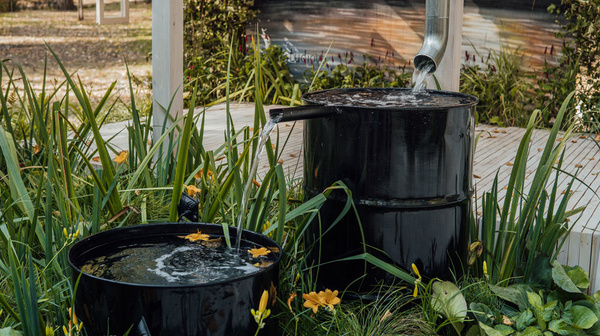
What is Florida-Friendly Landscaping?
Implement these Florida-Friendly Landscaping Practices to conserve our state’s natural resources, as well as your time, money, and energy. Plant selection, watering practices, pest management, and more all play key roles in protecting the environment for years to come.
The Florida peninsula contains numerous delicate ecosystems that we are behooved to preserve. Poor management of our lawns and gardens not only wastes time and money, but it can be harmful to Florida’s natural resources, too.
Make your landscape more conducive to resource conservation and protection by implementing Florida-Friendly Landscaping practices: nine principles of landscaping that will conserve your time, money, and energy, as well as protect the future of our state’s biodiverse natural resources.
Here’s our summary of these important landscaping principles.
Smart Planting and Placement
As you design your landscape and select plants to install, do your research. Choose as many native plants as possible, and assess your soil, water, and sunlight conditions before making planting decisions. This applies to all aspects of landscaping, from hedges to perennials to turfgrass.
Low-maintenance plants that don’t need excessive water or fertilization will thrive on your property and require less money and effort on your part, all the while helping to conserve water and protect your area’s resources.
Water Conservation and Proper Fertilization
Conserve Water
Be careful not to overwater. Too much water usage wastes a precious resource, contributes to runoff, drives up your utility bill, and can make your plants susceptible to pest problems.
- Choose plants that are drought tolerant
- Water plants and turfgrass only when they need it
- Make sure your sprinklers are not watering the driveway or other paved areas.
- Mulch garden beds to help the soil retain moisture and stay cool (and keep the weeds out!)
Fertilize Appropriately
When it comes to fertilizer, do your due diligence before using it—research what your plants need, how much, and when the appropriate application time is. Always follow label instructions and never fertilize on hard surfaces.
Attract Wildlife and Manage Pests
Plan your landscaping with wildlife in mind. Plant a pollinator garden to attract butterflies and bees, incorporate rocks and bushes to provide shelter for critters, and install a water source like a small pond or birdbath.
If you notice pests in your yard, don’t jump to pesticides. Begin by choosing pest-resistant plants and working to keep them healthy. Hand-pick insects if you spot them and use low-toxicity pesticides like horticultural oils or pesticidal soap if you must.
Reduce and Recycle
Runoff
Stormwater runoff contributes to erosion and carries pollutants, debris, and soil into our water systems. Retain irrigation and rainwater on your property to protect water quality, prevent erosion, and limit the need for additional irrigation.
- Install rain gardens and berms to keep water in your yard
- Use porous mulch and pavers instead of concrete for walkways
- Collect rainwater to use for irrigation
Yard Waste
Recycling yard waste decreases the amount of trash and water pollutants you produce and returns nutrients to the soil. Use leaves, clippings, cuttings, and pine needles as mulch or compost. Or, save them for your city’s yard waste pick-up days so that they can be recycled into compost for the community.
Protect Our Waterways
If you have a waterfront property, install a 10-foot-wide maintenance-free zone to protect the water from runoff and pollution. Don’t mow, fertilize, or apply pesticides in this area, and incorporate as many Florida-friendly plants here as possible.
In Summary
University of Florida IFAS said it best: “You don’t have to be an expert gardener or landscaper to create a Florida-Friendly yard. All it takes is a willingness to learn and a desire to build a beautiful yard that helps protect Florida’s environment.” For a full list of Florida-Friendly Landscaping principles, see the article here.